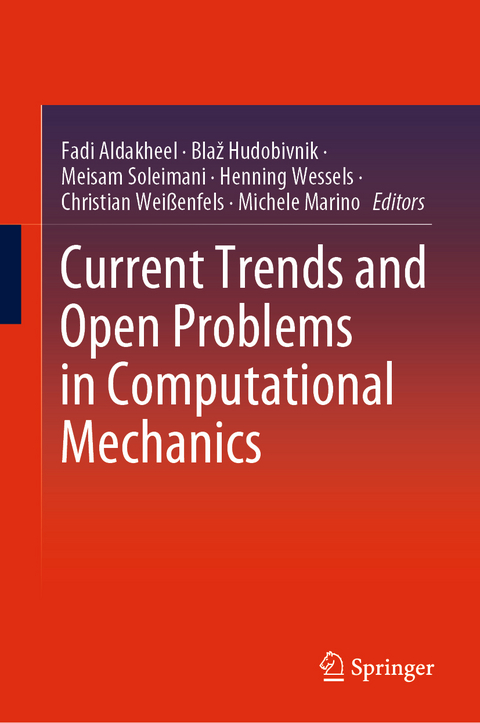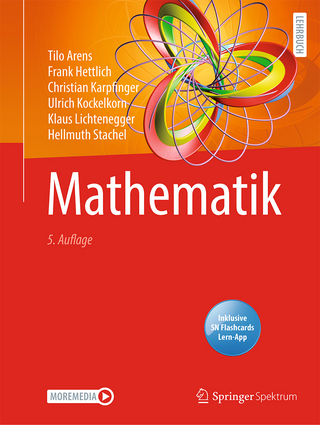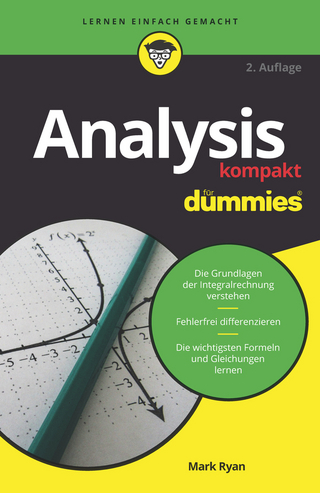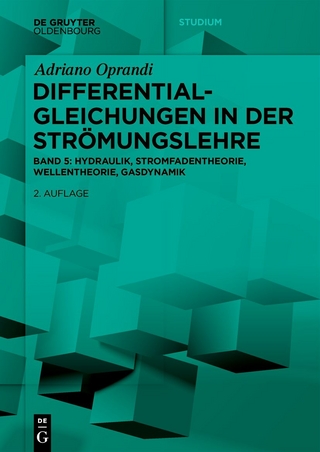
Current Trends and Open Problems in Computational Mechanics
Springer International Publishing (Verlag)
978-3-030-87311-0 (ISBN)
lt;b>Fadi Aldakheel, Dr.-Ing. habil., is since August 2017 group leader of the section material modeling and damage mechanics at the Institute of Continuum Mechanics at the Leibniz Universität Hannover LUH. He finished his Ph.D. in 2016 at the Universität Stuttgart Institute for Mechanics in Civil Engineering. His supervisor was the late Prof. Christian Miehe. Thereafter, he worked as a Postdoc and course director of the international master program COMMAS at the Universität Stuttgart. In 2021 he successfully finished the "Habilitation" at the Faculty of Mechanical Engineering - LUH under the supervision of Prof. Peter Wriggers. Fadi Aldakheel has co-authored more than 40 papers in peer- reviewed International Journals. He has been awarded numerous awards and grants as principal investigator, among which the Richard-von-Mises Prize in GAMM (Society of Applied Mathematics and Mechanics) and PI in CRC1153 / SPP2020. His research interests are related to modeling of material behaviors, variational principles, computational solid mechanics, structural mechanics, finite/virtual element method, multiphysics and multi-scales problems, machine learning, and experimental validation.
Blaz Hudobivnik, Dr., born in Slovenia where he obtained his university and Doctoral degree at University of Ljubljana. He studied Civil Engineering and finished his doctorate in 2016 under the supervision of Prof. Joze Korelc. Since November 2016 he is employed as a Scientific researcher at Institute of Continuum Mechanics at the Leibniz Universität Hannover. Alongside research, he is also advisor in numerical implementation to otherinstitute members, due to his expert knowledge of the Software-Tool AceGen/AceFEM, developed by his Doctoral advisor Prof. Korelc. His primary research interest at IKM are related to developments of the virtual element method and its application to wide range of problems. 2D and 3D space, to linear and nonlinear material behavior for static and dynamic solids, first and second order VEM, contact problems, additional his main research was coupled problems (thermo-hydro-mechanics), phase field, multi-scale and optimization problems. During his research time he coauthored around 27 peer-reviewed contributions.
Meisam Soleimani, Dr.-Ing., was born in Iran where he completed his Bachelor's and Master's studies in Mechanical Engineering at Sharif and Tehran University, respectively. Pursuing his academic path, he obtained his Ph.D. from Leibniz University in Hannover, Germany in 2017. Since 2020, he serves as the group leader of the computational biomechanics division at the institute of continuum mechanics (IKM) in Hannover. His fields of expertise are continuum mechanics, Multiphysics, and numerical simulation with application in computational biomechanics. In this regard, some of his recent research works are related to growth phenomena, arterial pathology, tumor modeling, biofilms simulation, etc. Upon approval of the German Research Foundation (DFG) in 2021, a new Transregional Collaborative Research grant called TRR 298 SIIRI: Safety-Integrated and Infection-Reactive Implants, on the implant technology with around 12 Mio EUR has been awarded. He is currently one of the principal investigators in this research consortium in which more than 150 scientists from medical schools and engineering departments in Germany are involved.
Henning Wessels has been appointed Juniorprofessor (tenure track) for data-driven modeling and simulation of mechanical systems at Technische Universität Braunschweig in May 2021. He has received his PhD from Leibniz Universität Hannover under the guidance of Peter Wriggers in 2019. During this
Chapter 1: Multiphysics computation of thermomechanical fatigue in electronics under electrical loading.- Chapter 2: Phase-field modeling of fatigue crack propagation in brittle materials.- Chapter 3: A non-intrusive global/local cycle-jumping techniques: application to visco-plastic structures.- Chapter 4: VEM approach for homogenization of fibre-reinforced composites with curvilinear inclusions.- Chapter 5: Free Bloch wave propagation in periodic Cauchy materials: analytical and computational strategies.- Chapter 6: Divergence free VEM for the Stokes problem with no internal degrees of freedom.- Chapter 7: Strategy for Preventing Membrane Locking through Reparametrization.- Chapter 8: Model-free fracture mechanics and fatigue.- Chapter 9: Node based non-invasive form finding revisited - the challenge of remeshing.- Chapter 10: Micropolar modelling of periodic Cauchy materials based on asymptotic homogenization.- Chapter 11: Experimental and numerical investigation of granules as crash-absorber in ship building.- Chapter 12: On Hydraulic Fracturing in Fully and Partially Saturated Brittle Porous Material.- Chapter13: Efficient two-scale modeling of porous media using numerical model reduction with fully computable error bounds.- Chapter 14: Perspectives on the master-master contact formulation.- Chapter 15: Remarks on the History of Glacier Research and the Flow Law of Ice.- Chapter 16: Anisotropic Failure Criteria in Relation to Crack Phase-Field Modeling at Finite Strains.
| Erscheinungsdatum | 15.03.2022 |
|---|---|
| Zusatzinfo | XI, 607 p. 254 illus., 213 illus. in color. |
| Verlagsort | Cham |
| Sprache | englisch |
| Maße | 155 x 235 mm |
| Gewicht | 1041 g |
| Themenwelt | Mathematik / Informatik ► Mathematik ► Analysis |
| Mathematik / Informatik ► Mathematik ► Angewandte Mathematik | |
| Technik ► Maschinenbau | |
| Schlagworte | Computational Mechanics • finite element technology • fracture mechanics • numerical simulation • Phase field modeling • Virtual Design • Virtual Element Method |
| ISBN-10 | 3-030-87311-0 / 3030873110 |
| ISBN-13 | 978-3-030-87311-0 / 9783030873110 |
| Zustand | Neuware |
| Haben Sie eine Frage zum Produkt? |
aus dem Bereich


